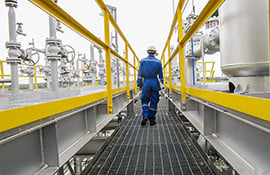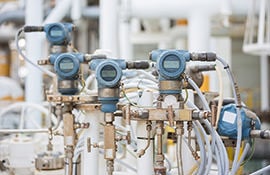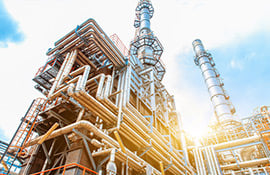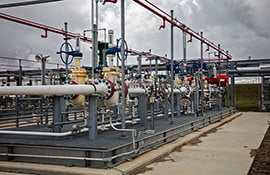Challenging applications within the Alkylation unit
Alkylation, the conversion of isobutene and alkenes (primarily propene and butane) into a gasoline component, requires precise control of the catalyst, Sulfuric Acid Alkylation Unit (SAAU) or Hydrofluoric Acid Alkylation Unit (HFAU). Fluid catalytic cracking is a critical conversion process dependent on accurate flow rate and pressure control for the production of the desired gasoline, alkene gases, and other products. Equipment and products durable for inhospitable and corrosive conditions are paramount to maintaining safety and environmental criteria.







